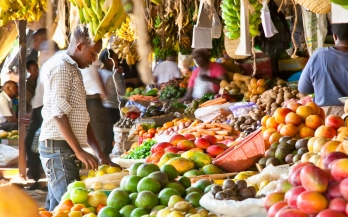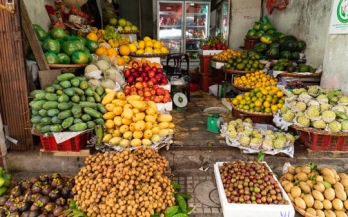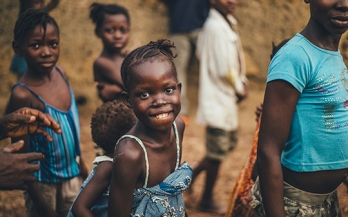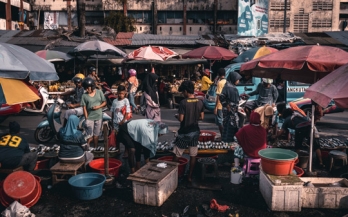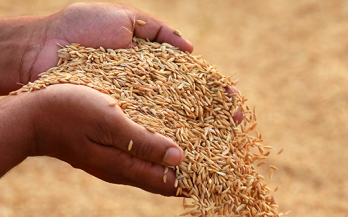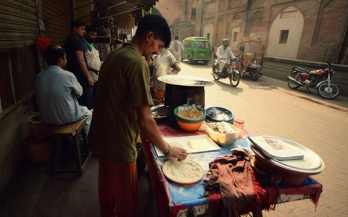- 10/09/2020
The Commercialisation of Biofortified Crops (CBC) Programme was launched in 2019 to address widespread hidden hunger in Africa and Asia by significantly expanding the reach of foods and food products made with biofortified staple crops.
- 16/11/2021
Policy Options Toolkits are a core output of GAIN’s policy and coordination efforts, under the Keeping Food Markets Working (KFMW) programme. These toolkits were developed through a participatory co-design process with GAIN, conducted in Beira and Pemba (Mozambique), Machakos and Kiambu (Kenya) and Rawalpindi and Peshawar (Pakistan) - between September 2020 and September 2021.
- 14/10/2021
Understanding urban specific contexts and food system challenges during the pandemic is the first step towards the co-design of policy options. Between December 2020 and April 2021, GAIN conducted a mixed method Rapid Needs Assessment of the urban food system in Machakos and Kiambu (Kenya), Beira and Pemba (Mozambique), and Rawalpindi and Peshawar (Pakistan).
- 06/06/2021
The COVID-19 pandemic is a multiplier of vulnerability, compounding threats to food security and nutrition (FSN) while exposing weaknesses in food systems. In response, the Global Alliance for Improved Nutrition (GAIN) developed the Keeping Food Markets Working (KFMW) programme to provide targeted support to help sustain core food systems.
- 18/03/2021
This Situation Report—the fifth in a series—finds that COVID-19-related control measures continue to have an impact on food systems in 10 countries where GAIN works: Bangladesh, Ethiopia, India, Indonesia, Kenya, Mozambique, Nigeria, Pakistan, Rwanda and Tanzania.
- 10/03/2021
Pakistan’s adolescent population (circa. 40 million people) is experiencing a double burden of malnutrition, with 21% of boys and 12% of girls underweight and 18% of boys and 17% of girls overweight or obese. This merits a call to action to prioritise public funding and programming to address the determinants of adolescent malnutrition.
- 20/05/2019
Adolescence is defined as the period of 10-19 years. In 2017, almost one out of five Indonesians was an adolescent (44.93 million adolescents). Nutrition is one of the cornerstones for adolescent health. Adolescence is a life stage for physical growth and an opportunity for developing healthy dietary practices.
- 02/12/2020
The COVID-19 pandemic is a multiplier of vulnerability, compounding threats to food security and nutrition (FSN), while exposing weaknesses in food systems. In response, the Global Alliance for Improved Nutrition (GAIN) developed the Keeping Food Markets Working (KFMW) programme to provide targeted support to help sustain core food systems, workers, and markets during the COVID-19 emergency.
- 24/11/2020
The Commercialisation of Biofortified Crops (CBC) Programme was launched in 2019 to address widespread hidden hunger in Africa and Asia by significantly expanding the reach of foods and food products made with biofortified staple crops.
- 27/05/2020
Foodborne illnesses contribute to the burden of diseases worldwide. Ensuring food safety is therefore essential to fight malnutrition in all its forms. In Pakistan, the Punjab Food Authority (PFA) was established in 2011 with the responsibility for ensuring the safety and quality of all food items and products in the province through raising awareness and enforcing food hygiene and quality standards.

